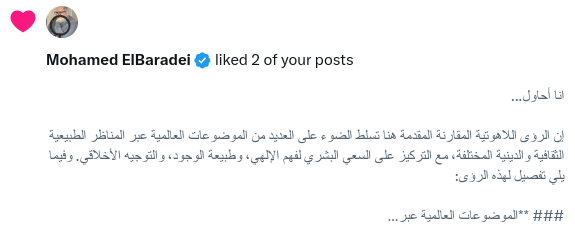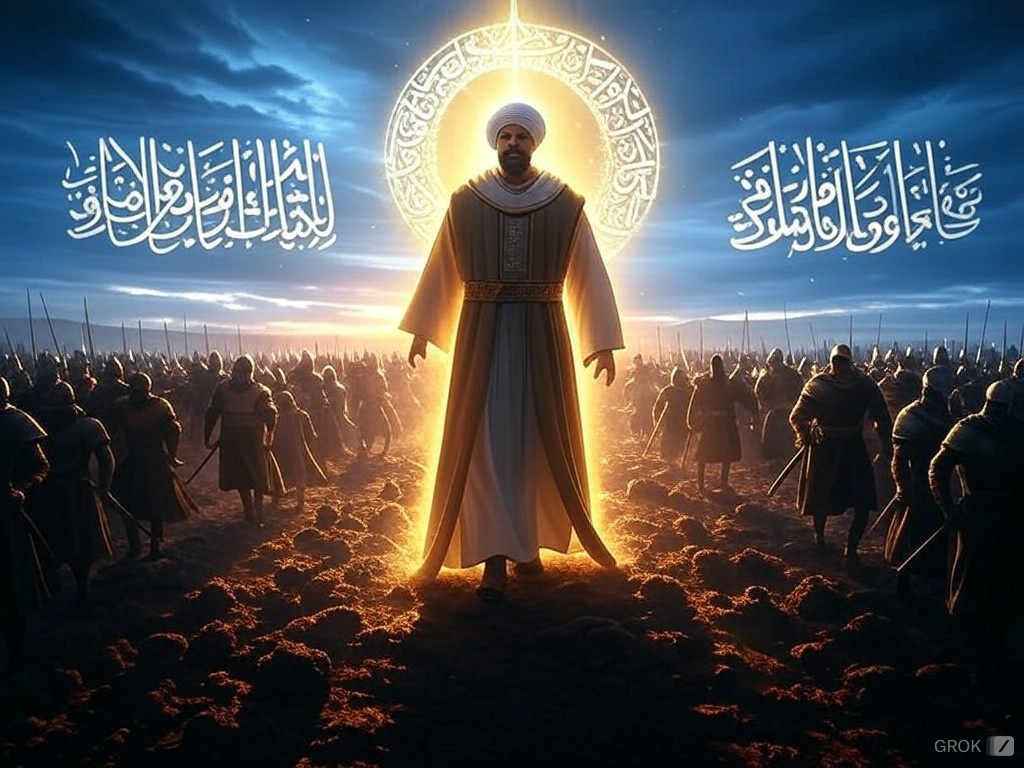What I wish for 2025? I wish for the savage criminal land robbers to return to their ancestral homeland. https://x.com/R34lB0rg/status/1871962817131388999
My friend Moh in Gaza hasn't tweeted for days and he is also not responding to my messages. I can only hope he hasn't been murdered by the savage land robbers. إِنَّا لِلَّهِ وَإِنَّا إِلَيْهِ رَاجِعُونَ💔😭🇵🇸 https://x.com/kox6x/status/1872917230293532901
236 Retweets 744 Linkes But only 7,553 Impressions
X (Twitter) is HEAVILY manipulating here. https://x.com/R34lB0rg/status/1873526338793165217
This honorable lady, the wife of a martyr, became the breadwinner for her family after her husband, taking care of her children alone, pounding rocks alone! Here are the families of the martyrs and the bereaved Those who have lost loved ones and breadwinners The pain and sadness double under these worn-out tents, which do not protect from the cold and are not suitable as shelter!! The most difficult task we face now: to remain human in this war that has deprived us of all the necessities of life! From the midst of the tents of the displaced drowned by rainwater, we stand filled with helplessness. Full report on Al Jazeera
أشعر بالشرف والفخر لأن الشيخ محمد البرادعي قد أعجب بتغريدتي، كأن القمر نفسه استضاء بنورها، وكأن النخلة أصبحت تميل لي بتحية. https://x.com/R34lB0rg/status/1874077756004458658/photo/1

The scene is difficult. Since this morning, I have been walking among the tents of the displaced, and under the showers of rain, I lived the moments of the tents being flooded, and I witnessed the families shivering from the cold. I can't find words to describe what I saw. https://x.com/HossamShabat/status/1874032723943457199
Israel is not a Jewish state #פיקוחנפש
In Judaism, the sanctity of life is a fundamental principle, with the Torah commanding, "You shall not murder" (Exodus 20:13). The Talmud expands on this, teaching that to save a life is to save the entire world (Sanhedrin 37a). Jewish law (Halakha) prioritizes the preservation of life (Pikuach Nefesh), often superseding other commandments in situations where life is at stake, highlighting life's paramount value.
In the discourse of world religions, one of the most profound and universally upheld principles is the sanctity of life. This concept, while interpreted differently across various traditions, underpins the ethical frameworks of Buddhism, Hinduism, Christianity, Islam, and Judaism, serving as a cornerstone for discussions on human rights, international law, and moral conduct in the face of geopolitical conflicts.
Buddhism:
Buddhism, particularly in its Mahayana form, places immense value on the sanctity of all sentient life. The principle of Ahimsa (non-violence) is central, advocating for compassion towards all beings. The first precept in Buddhism, "I undertake the training rule to abstain from taking life," directly reflects this sanctity. The Buddhist perspective encourages the recognition of life's inherent value, promoting actions that preserve and protect life, which aligns with the broader theme of ethical living aimed at reducing suffering.
Hinduism:
In Hinduism, the sanctity of life is encapsulated in the concept of Ahimsa as well, which is a key tenet in various philosophical schools like Jainism and Yoga. The Bhagavad Gita (Chapter 13, verse 8) describes humility, non-violence, patience, and purity as divine qualities, emphasizing the importance of preserving life. The idea that all life forms possess a spark of the divine (Atman) further reinforces the sacredness of life, urging followers to respect and protect it.
Christianity:
The Christian doctrine is foundational in its assertion of the sanctity of life, rooted in the belief that humans are created in the image of God (Imago Dei). The commandment "Thou shalt not kill" (Exodus 20:13) is a direct scriptural mandate protecting human life. This principle is further elaborated in the New Testament, where Jesus teaches love and forgiveness, promoting peace and life over violence, as seen in the Sermon on the Mount (Matthew 5:38-42).
Islam:
Islam places a strong emphasis on the sanctity of life, with the Quran stating, "Whoever saves one life, it is as if he had saved mankind entirely" (Quran 5:32). This verse underscores the value of each individual life, making the preservation of life a communal and religious duty. The concept of Fitrah, the innate disposition towards good, includes an inherent respect for life, aligning with the broader Islamic ethos of justice, mercy, and compassion.
Judaism:
In Judaism, the sanctity of life is a fundamental principle, with the Torah commanding, "You shall not murder" (Exodus 20:13). The Talmud expands on this, teaching that to save a life is to save the entire world (Sanhedrin 37a). Jewish law (Halakha) prioritizes the preservation of life (Pikuach Nefesh), often superseding other commandments in situations where life is at stake, highlighting life's paramount value.
Common Elements and Modern Implications:
Across these traditions, several common elements emerge regarding the sanctity of life:
In the context of modern geopolitical conflicts, such as the situation in Palestine, these religious teachings provide a factual and argumentative foundation for advocating peace, justice, and the protection of human rights. The selective application or disregard of these principles, as seen in some responses to conflicts, represents a significant departure from the core teachings of these religions.
Arguments for Consistency:
This comparative analysis highlights that despite doctrinal differences, the sanctity of life remains a unifying thread across major world religions, providing a robust argument for its consistent application in addressing global issues of human rights and peace.
